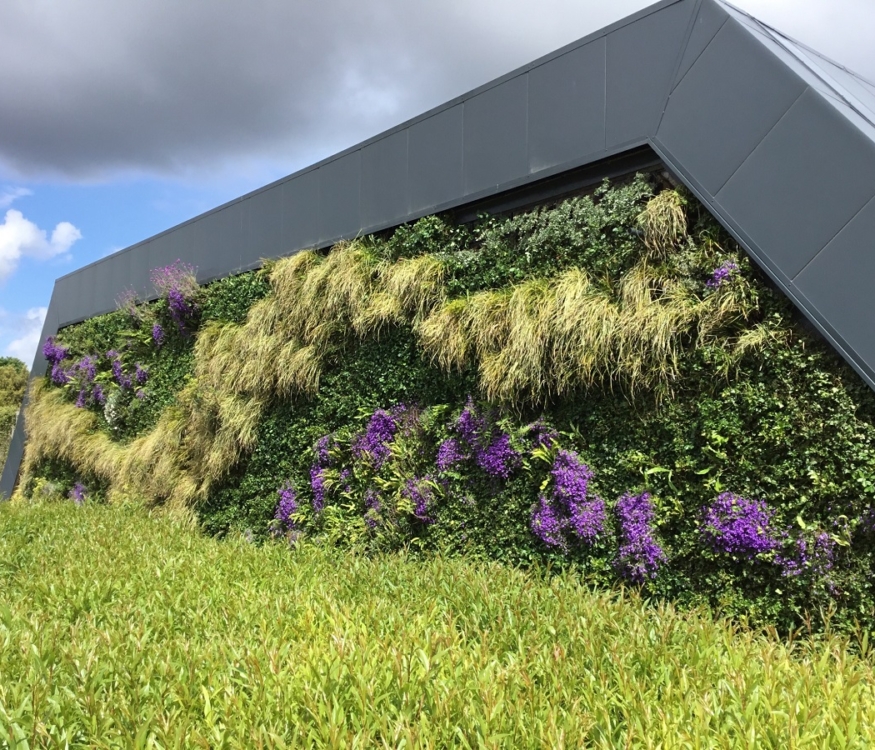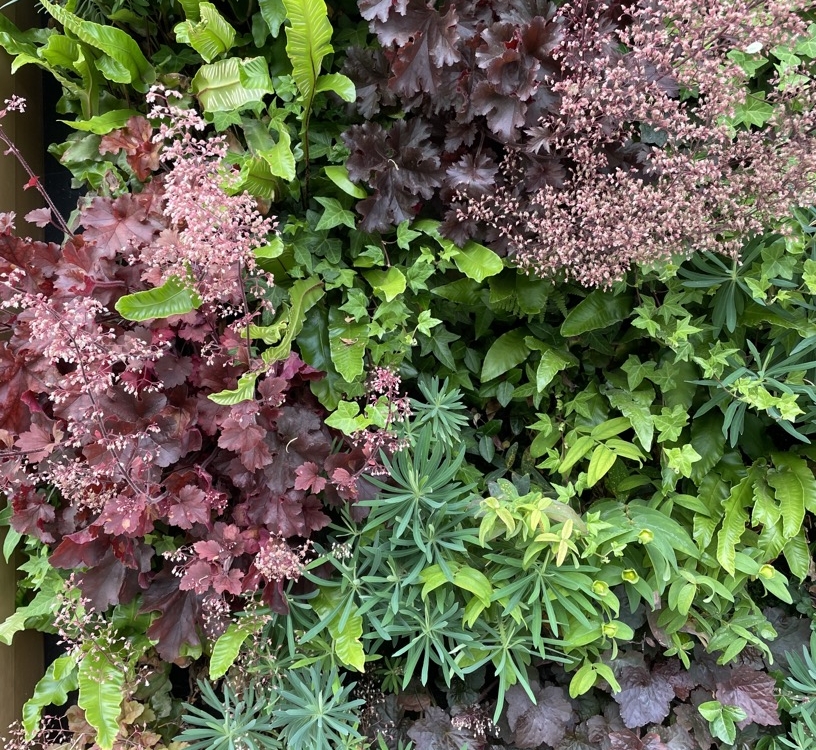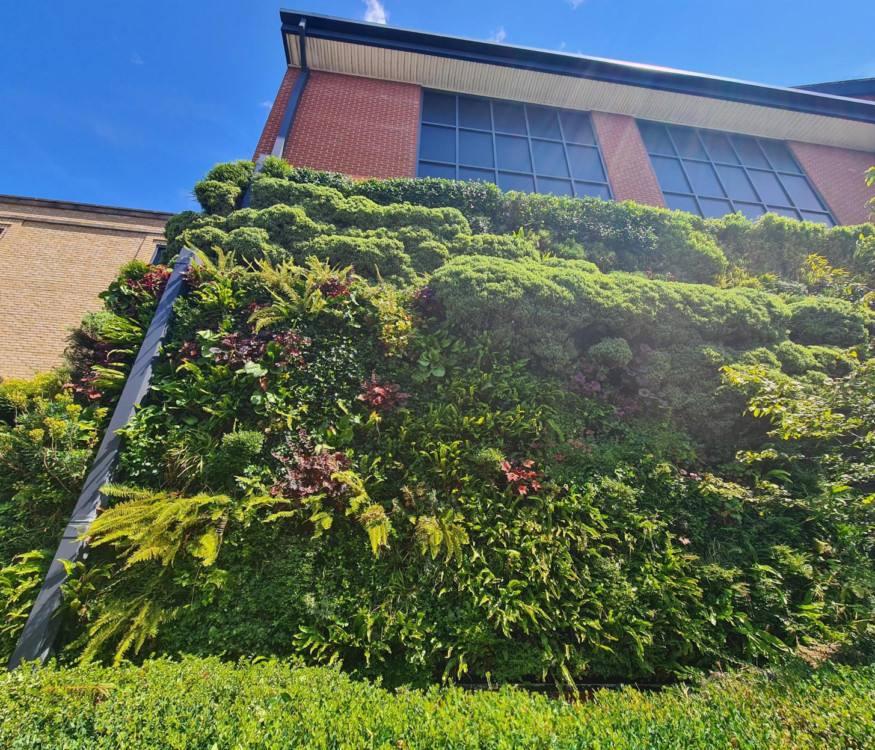Did you know most people spend around 90% of their time indoors and in ‘unnatural’ spaces? It is vital that we pay attention to our interior surroundings and attempt to mirror the things we find so attractive about the outside world. As we start to plan to return to the office, and we look at how to prioritise the wellbeing of staff, the time is right to utilise the power of plants and get in touch with a natural phenomenon known as biophilia.
Biophilia is an “innate and genetically determined affinity of human beings with the natural world”. Put simply, biophilia is the intrinsic connection between human beings and nature, and by extension, plants. By tapping into biophilia, we access the plethora of benefits that plants offer – and it is time to bring that into the workplace.
Plants are able to filter our air and improve the overall quality of the air we breathe, reduce stress, improve general wellbeing, boost productivity and creativity and even boost your mood just by being in your eyeline throughout the day.
People and Wellbeing
With the world needing to take care of its mental health more than ever, plants can play a part in helping to ease the load. Constantly seeing and being around plants can be a calming experience, helping to reduce anxiety and stress.
In 2010, the University of Technology in Sydney carried out a study that found significant reductions in stress and anxiety for employees in the workplace when surrounded by plants. 37% reported a drop in tension and anxiety, there was a 58% drop in depression and dejection as well as a 38% drop in fatigue. There is a wealth of scientific evidence to back up the long-standing theory that plants are one of the many keys to happiness and longevity.
Viewing plants on a regular basis restores our connection with nature and satisfies our need for biophilia, and there is no better place to do this than the environments in which we spend the majority of our time. A healthier workforce is a happier workforce, which in turn leads to further benefits to the business in the long run.
Air Quality
While humans need oxygen to breathe, plants emit oxygen and purify the air through the absorbing of other gases. In the 1980s, NASA found that plants were adept at removing chemicals from the air such as benzene, trichloroethylene and formaldehyde which ultimately makes it cleaner for us to breathe. Air quality can have a sizeable impact on our day to day lives, especially as air pollution is one of the world’s biggest killers today. Cleaner air can mean fewer headaches and decreased allergy symptoms.
Plants can reduce CO2 levels by 10-25%, as well as removing significant quantities of VOCs (Volatile Organic Compounds) from the air which, in an office environment, can be key to concentration and overall wellbeing. A recent study commissioned by the Building Engineering Services Association found that 70% of office workers believed that poor air quality has a negative effect on their productivity and wellbeing – that’s a significant number of employees being impacted by something so seemingly simple. Unfortunately, the reality is that air quality is one of the biggest factors in overall health in an increasingly polluted world.
Another benefit of plants and biophilia in offices is the impact on acoustics. Busy offices can impact concentration and be an uncomfortable environment to work in, yet plants can act as a cushion, helping to muffle noise. With softer acoustics and less echoes, employees are able to focus more without a wall of noise surrounding them when the ebb and flow of an office is amplified.
Productivity and Creativity
One of the key benefits of plants to businesses and office owners, especially in terms of return on investment, is the overall boost to productivity and creativity. With all the benefits previously mentioned come improvements to the office environment, but productivity and creativity are the benefits that have been measured and proven to positively impact performance of businesses.
A 2014 study from the University of Exeter found an increase of 15% in productivity when comparing two large commercial offices, one with plants and one without. As we spend so much time in the office, and distractions are easy to come by in today’s world of technology, the power plants can be a real asset in getting the job done.
Productivity isn’t the only benefit, though. A study by Texas A&M University found that creativity was also boosted by 15% by plants in the workplace. In sterile environments, creativity can be stunted, and new ideas can be hard to come by. By boosting creativity, new solutions can be found, and growth can be acquired. This is especially useful in workplaces that require new ideas, design work and a need to go further than competitors in new ways.
These two benefits alone offer a new kind of return on investment for employers, one that will impact the bottom line in an alternative way. It has been said before that the key to a business’s success is its people, and if the environment in which they work is conducive to happiness then the rewards can be reaped.
Return on investment
Biophilia is not an urban myth but a feature of human nature that has a multitude of proven benefits for us to enjoy. For businesses alone, there is a clear link between creating a more natural environment and a tangible return on investment. Higher levels of productivity mean higher levels of output, and the increase in creativity improves the quality of the work produced.
There’s more, too. The improvements to general wellbeing, mood, air quality and mental health lead to lower sickness and absence rates, further improving productivity. The average employee in the UK takes 6.4 days a year off sick – imagine if you could reduce that figure just by enhancing the space in which your staff members work. Increased energy levels and engagement can lead to fresh ideas and solutions that otherwise may not have been thought of.
If you are looking for innovative ways to integrate plants into your premises and create an inspiring, creative space for staff, check out our information about the benefits of interior living walls or contact our experienced Sales team for advice.




